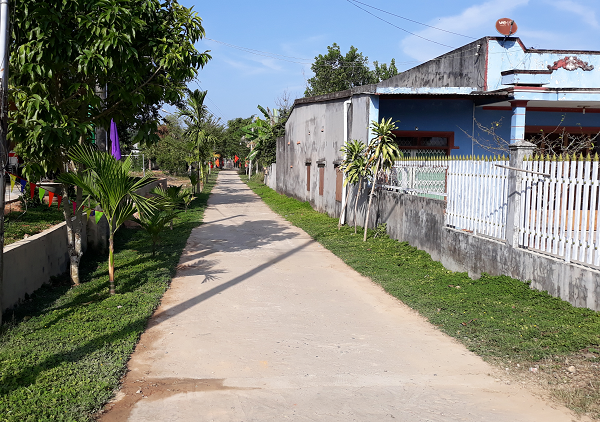(VOVWORLD) - Dong Nai Thuong is the most remote commune in Cat Tien district, Lam Dong province. In the past, the narrow, slippery paths made getting around extremely difficult. The government used to send food aid between crops. Thanks to Vietnam’s new-style rural development program, life in Dong Nai Thuong has improved.
|
 Roads in Dong Nai Thuong hamlet are newly built or upgraded. Roads in Dong Nai Thuong hamlet are newly built or upgraded.
(Photo: baolamdong.vn)
|
K’Loc, who lives in a spacious house next to a newly paved road in Bon Bu Ra hamlet, says his hamlet has drastically changed, thanks to State investment, private land donations, and local manpower.
He told VOV: “Local people are willing to donate land for a road if the road runs through their property. We know that the roads are built to make our life better.”
In addition to significant investment in the electric system, roads, schools, and medical stations, villagers have restructured their crops and livestock and applied technology to production. As a result, many households have escaped poverty and begun to get rich.
Dieu Thi Prot, Vice Chairwoman of the Dong Nai Thuong People's Committee, said that thanks to state investment programs, the commune has been transformed.
Cashew, rubber, coffee, and fruit trees have replaced rice and have proven more profitable. Local families now earn thousands of US dollars each year.
“Villagers have supported communications activities disseminating Party and State policies and laws. Now they recognize the importance of applying technology to farm production,” said Prot.
Local awareness of social issues has also improved. Many backward customs have been eradicated.
Dieu Thi Reo, a Bu Gia Ra villager, said: “Local people no longer stay at home and performed superstitious rituals when they get sick. They now visit doctors at medical stations when they’re sick or having a baby.”
Dieu K’Giac, Secretary of the Dong Nai Thuong Party Committee, said that while in 2010 half of the famlies in the commune were poor, now there are only 17 poor families. The average income per capita is now over 1,700 USD a year. The commune has fulfilled all criteria and will be recognized as a new-style rural commune later this month.
Party Secretary Dieu K’Giac said: “Because the commune is newly established, we have many works which must be constructed in line with master-planning and in compensation for land clearance. Local Party members and officials have set an example of donating land for welfare constructions, and other people have strongly responded to the program.”